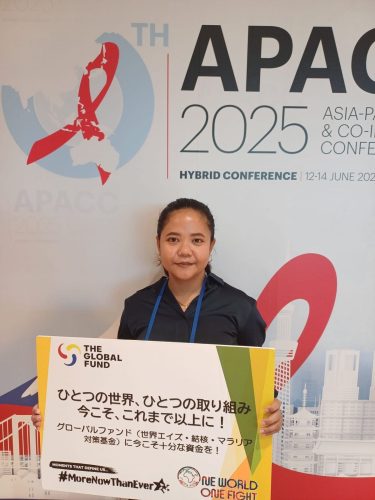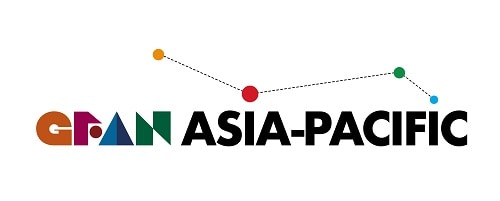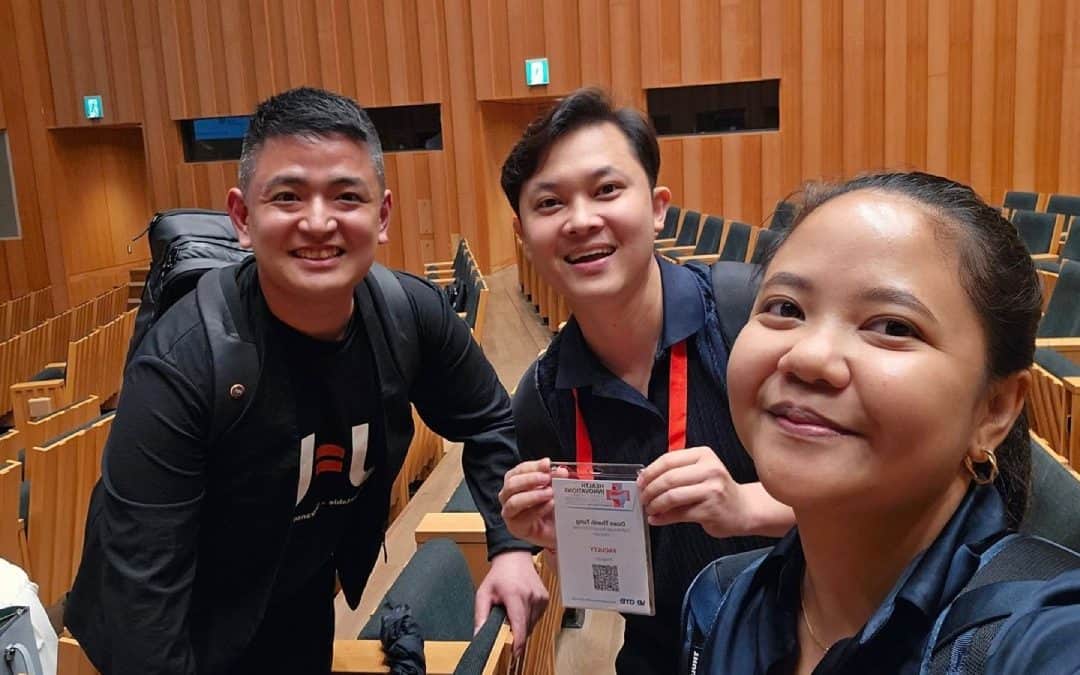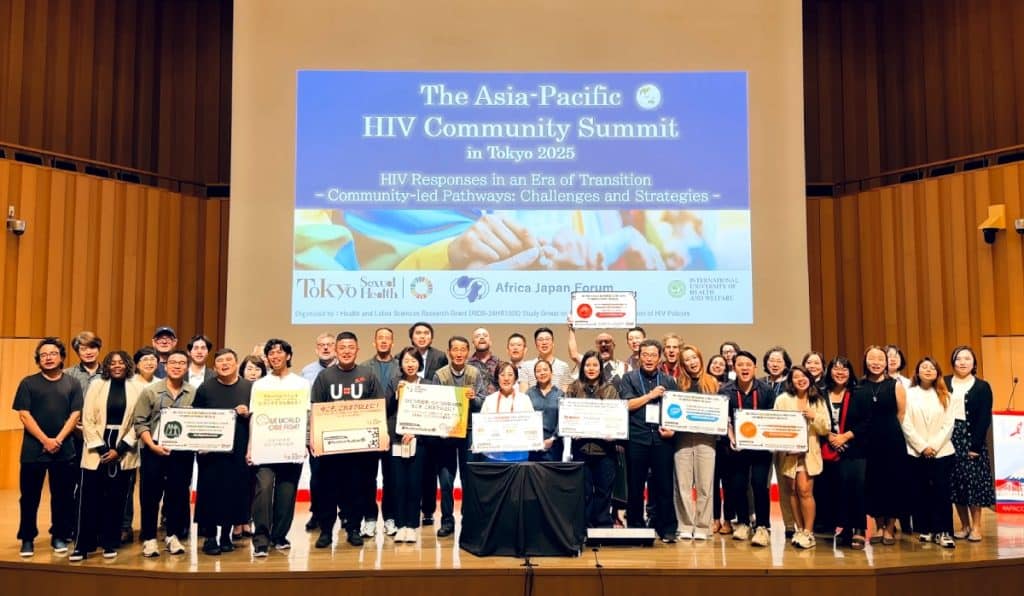
On 12-14 June 2025, the 10th Asia Pacific AIDS & Co-Infections Conference (APACC) took place in Tokyo, Japan, which brought together around 800 researchers, healthcare practitioners, community leaders, and policymakers from across the Asia-Pacific and beyond to discuss the latest research, share insights, and foster collaboration on HIV and co-infections. Coinciding with the Conference, the International University of Health and Welfare and Africa Japan Forum also co-organised a Community Summit in Tokyo on 14 June 2025 to bring together community leaders and advocates from across the Asia-Pacific region to discuss strategies, challenges, and innovations in community-led responses to HIV.
In this blog interview, Ikka Noviyanti, the Regional Coordinator of Youth LEAD and a Delegation Member of the Global Fund Developing Country NGO Delegation, reflects on her experience at APACC, the Community Summit, as well as her engagements with Japanese stakeholders and youth health advocates.
Q1: What were you looking forward to in these engagements?
When preparing for my trip, I was especially looking forward to connecting with youth advocates from Japan and across the region – learning from their lived experiences and strategising together on ways to amplify each others’ work in pushing back against systemic barriers faced by young people and communities. I was also excited about the opportunity to contribute to conversations around the cuts to health funding as well as give voice to perspectives from young key populations.
I aimed to build stronger relationships with civil society advocates from developed countries in Asia, like Japan and South Korea, while also listening and honing in on our collective advocacy priorities, and I wanted to return with renewed energy to keep fighting for equitable and inclusive health responses in the Asia-Pacific region!
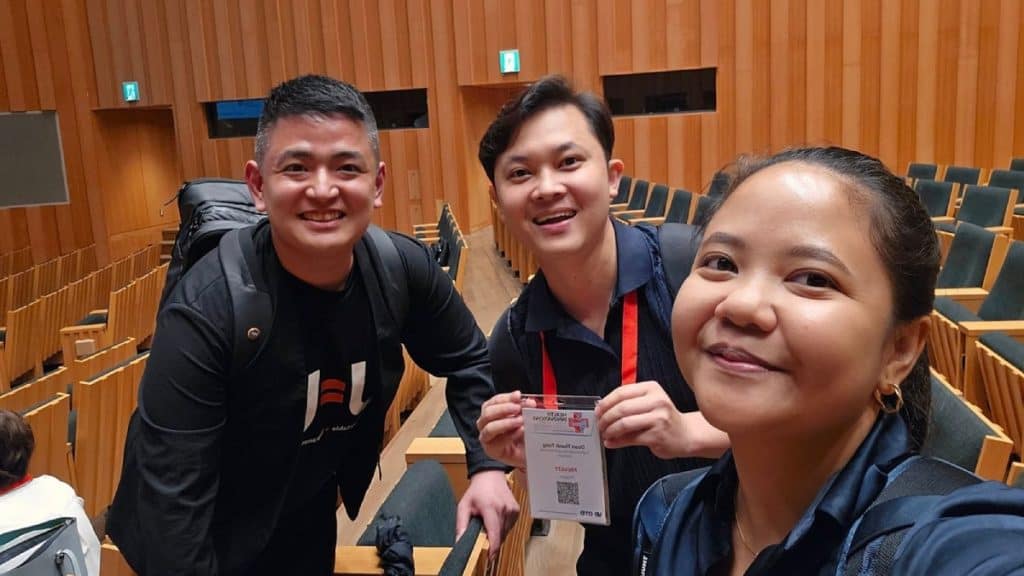
Q2: Tell us about your experience at APACC and the Community Summit. What were some of the central themes of the discussions?
On 13 June, I attended a special meeting with members of the National Diet of Japan about the re-emergence of the HIV/AIDS, tuberculosis (TB) and malaria crisis in the context of US foreign aid suspension, where I had the opportunity to share with Diet members about the current funding landscape and the realities faced by youth-led organisations in our region.
This meeting was particularly memorable and meaningful as it is not often that I have the chance to engage directly with parliamentarians about the situation in Asia-Pacific, a reality which I also spoke on during the Community Summit the day after as well.
During my time in Tokyo, I had the opportunity to meet with a group of young people working on sexual and reproductive health and rights (SRHR) in Japan. Some of the things we discussed include the situation for young people to access SRHR information and services in Japan and ways forward to work together in the future, as it is very important we scale up our movement together as part of a regional youth-led network.
A key takeaway from this experience is the urgent need to build stronger relationships to strengthen our collective advocacy. Also, there were discussions during the Community Summit on the importance of diversifying funding sources to sustain and scale up our work in HIV, TB and malaria, to avoid being heavily dependent on a small number of traditional donors.
It is also critical that we continue to engage with members of parliament in Japan and other countries, to update and educate them about the current situation faced by communities, so they are able to make informed decisions around funding that support key and vulnerable populations in health responses and empower community organisations and leadership.
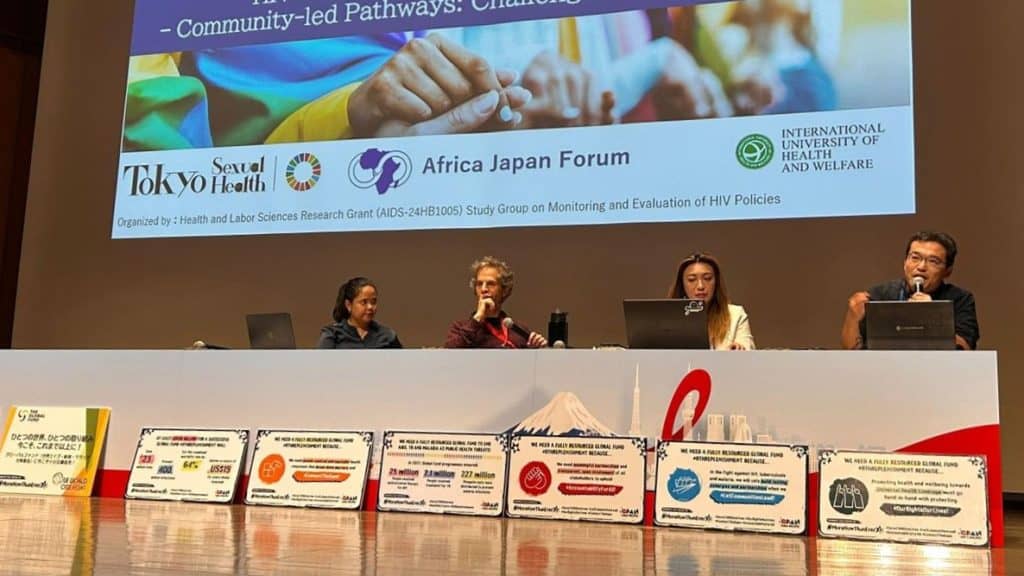
Q3: In the context of cuts and disruptions to global health funding, ODA, and shrinking civic spaces, what role does Japan play in ensuring we stay on track to achieving the Sustainable Development Goals (SDGs) and Universal Health Coverage (UHC)?
Japan has a long track record as a leader in global health and one of the strongest supporters of the Global Fund to Fight AIDS, Tuberculosis and Malaria (Global Fund). But Japan’s contribution is more than financial – it is also strategic. As the only G7 country in Asia, Japan holds a unique position to catalyse regional action, particularly in the Asia Pacific, where HIV, TB, and malaria remain significant threats especially for young key populations, migrants, and communities often left behind.
Japan’s leadership will inspire bilateral and multilateral alignment at a time when coherence is urgently needed, and play a significant role in influencing other countries in Asia Pacific to prioritise and support investments towards strengthening health and community systems. Japan’s domestic success in Universal Health Coverage (UHC) has paved the way for many countries in the region who are striving to achieve UHC by 2030 – it is important Japan continues its unwavering partnership with the Global Fund to translate that goal into reality.
As a leader in global health, Japan also brings invaluable technical expertise to the fight against AIDS, TB and malaria. Through initiatives like the Global Health Innovative Technology (GHIT) Fund, Japan is accelerating research and development of new diagnostics, treatments, and vaccines for diseases like TB and malaria. Japan has also strengthened health systems across the region through multilateral and bilateral relationships with the Ministries of Health of many countries across Asia Pacific, building capacity in supply chains, workforce training, and pandemic preparedness. These are exactly the pillars we need to deliver more integrated and resilient responses to HIV, TB, and malaria within the broader UHC goals.
Q4: Why is it important for key populations, especially young people, to be engaged in HIV, TB and malaria health responses?
Young people are not just beneficiaries. We are the centre of current epidemics, especially in many countries where young people represent a large portion of new HIV infections and experience. Yet, young people face the most barriers to access due to stigma, legal restrictions, and lack of youth-friendly services. So without meaningful engagement with young people, our HIV responses risk missing the mark entirely.
Young people bring fresh perspectives and digital fluency to the global health movement. We are regularly at the forefront of pushing for improvements to the status quo, devising creative solutions, and fighting for greater equity. The younger generations also better understand the complex intersectionality of our identities, whether related to gender, sexuality, or socio-economic status, allowing for more holistic, inclusive programming and innovations in our solutions.
Youth leadership today is the foundation for resilient health systems tomorrow. Youth engagement ensures the long-term effectiveness and sustainability of programmes, as we have more years to contribute, develop, and build capacity within our organisations.
Something I emphasised during the Community Summit is the immense power in community-led responses. The community-led approach is a vital part of life-saving responses, because communities and community health workers are the ones who bring health services closer to the people who need it the most, especially in hard-to-reach environments and criminalised settings. Investing in community-led responses also ensures accountability, innovation, and trust-building among communities as well.
However, young people in our communities continue to face persistent barriers to meaningful engagement. In many contexts, legal and policy barriers such as the age of consent and criminalisation block young people from accessing healthcare services on HIV and SRHR. Too often, youth engagement is tokenistic, while lacking real decision-making power or budget control. For example, young people may be invited to sit at the table where their words are “collected”, yet are excluded from participating when the budget is developed. On a related note, many youth-led organisations remain underfunded and undervalued, while the shrinking of civic spaces is making it harder for young people to speak out safely and organise freely.
Q5: What message do you have for other youth advocates fighting to end the epidemics of HIV, TB, malaria and other communicable diseases?
To every youth advocate fighting to end HIV, TB, malaria, and other communicable diseases, know this: your voice matters, your leadership is essential, and you are not alone, because we are part of a global generation refusing to be silenced by stigma, funding cuts, or outdated systems. Whether you’re advocating in a clinic, a classroom, or online – our fight is saving lives.
It’s not always easy. Many of us are pushing against legal barriers, political repression, and shrinking civic spaces. But every time we organise, speak up, and hold decision-makers accountable, we create space for others to follow.
Finding your community and network is key because together, we are stronger. Working by ourselves and advocating for our communities in silos, it is difficult for our voices and our messages to reach other parts of the world. Connecting with each other is really important to build stronger collective advocacy and impact.
Ikka Noviyanti is a passionate advocate from Indonesia and currently serves as the Regional Coordinator at Youth LEAD. Since joining the organization in 2018 as an Advocacy Officer, she has built extensive experience engaging with key population networks at both national and regional levels.
In her role as Regional Coordinator, Ikka leads Youth LEAD’s regional programs and oversees daily operations, working closely with stakeholders, civil society networks, and board members to shape the organization’s strategic direction. She also heads the secretariat and represents Youth LEAD in international forums and high-level dialogues.
Ikka is committed to amplifying the voices of young key populations and advancing their rights. She currently serves as a member of the Developing Country NGO Delegation to the Global Fund Board, contributing to global decision-making on health and human rights.
